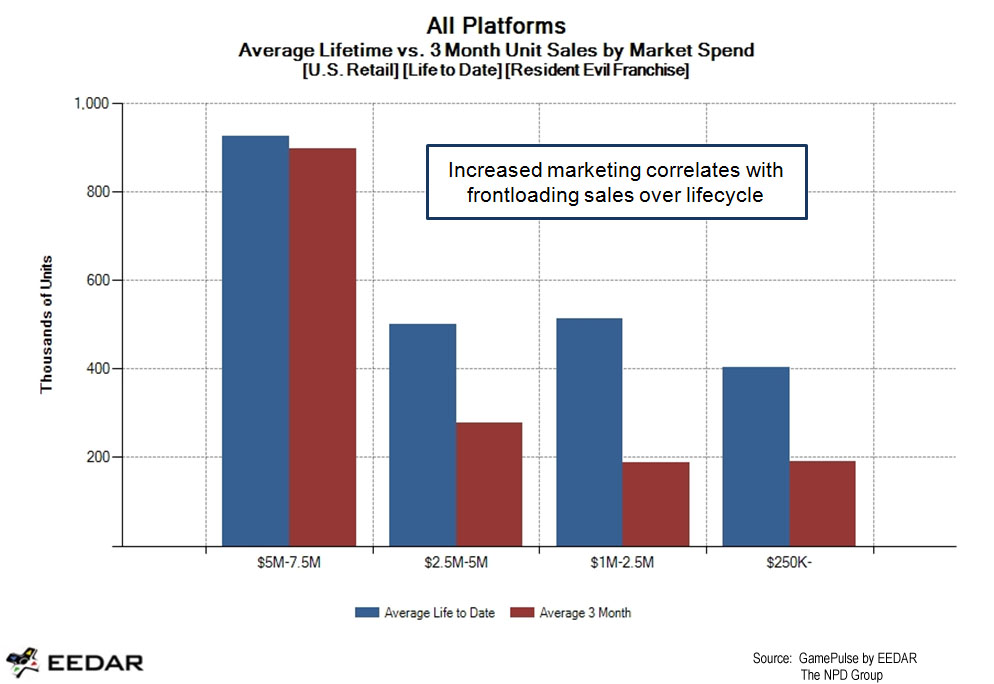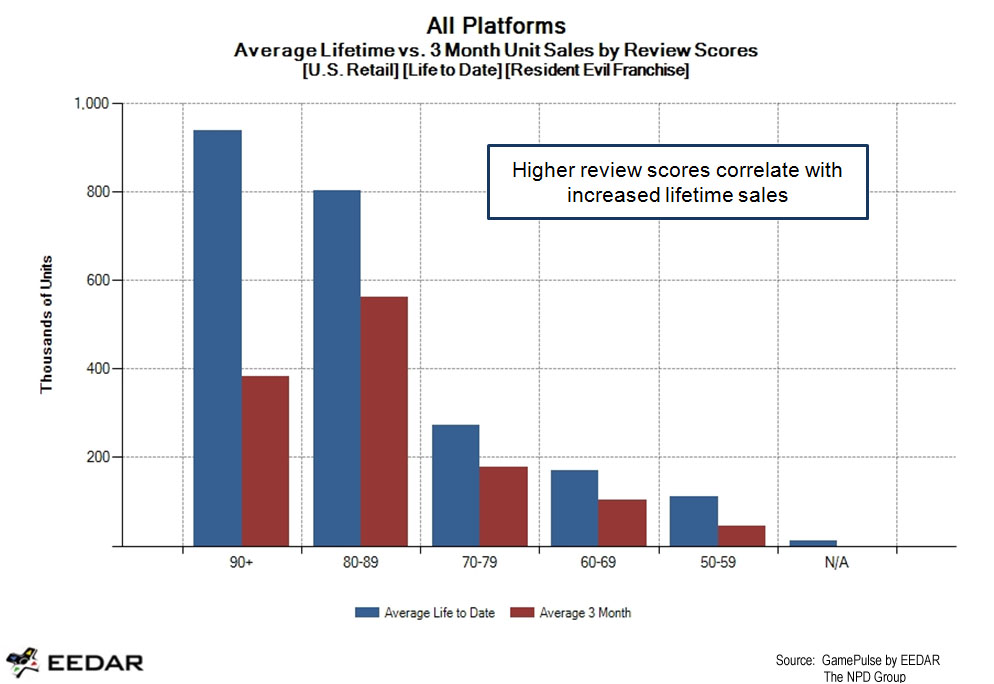Reprinted with permission from IndustryGamers {link no longer active}
We recently reported on new findings from the folks at EEDAR. The firm’s latest report, revealed this week during the [a]list Summit by Ayzenberg Group, showed that the top 10 selling games this year through June have been mostly dominated by older titles like Wii Fit or Mario Kart Wii. There were a few exceptions, and Capcom’s blockbuster Resident Evil 5 was one of the big ones. The game is second in sales this year so far, only to Wii Fit. In fact, it’s sold close to 2 million in the U.S. and around 5 million globally, making it the most successful entry in the franchise yet.
So what did Capcom do differently this time Besides the fact that they made a very good game, the marketing team really kicked it up a notch prior to launch, and this was critical to the title’s success, EEDAR points out.

“RE5 demolished sales comparatively to any other RE game… and obviously there was the movie that came out [Resident Evil: Extinction] and to an extent I think that helped, but you have to look at why this RE really broke out. Was it because this was just the right time for zombies (Left 4 Dead, Dead Rising, zombies in Call of Duty: World at War, etc.) Maybe, but I think their marketing campaign was really pushing the zombie element and getting people really excited about it. I think they just nailed an exciting zombie game with a mature franchise and a very experienced marketing team,” EEDAR executive chairman Greg Short told us.
Capcom had a great Kijuju viral marketing campaign, and the company also did a great job pushing trailers. Getting trailers in front up consumers’ eyes leading up to launch is always a good way to spark interest and potentially increase sales, and Capcom did just that. Indeed, Short pointed out that, according to GameTrailers.com StreamStats, RE5 saw 24.5 million media views, easily topping other big games like Capcom’s own Street Fighter IV (17.5 million media views) and Sony’s Killzone 2 (17 million media views).
“I think what’s interesting is we’re starting to see companies understanding that you really do need to spend money – from a marketing budget perspective – if you want people to get very excited about your game. There are so many games out there that are only spending $1.5-$3.0 million on their marketing campaign. And they’ll spend $20 million developing their game, but when it comes time to get consumers to chatter about it, they kind of trip over the finish line,” Short commented. “It’s so different from Hollywood and the percentage they spend from their marketing budgets compared to what the development budget is. In some cases, 20-30 percent of the production budget goes toward marketing, just getting people aware and excited. So what stands out to me for RE5 is they did the right marketing campaign and they put the right amount of money behind it.”

He added, “Even if you look at other titles that have done well – look at Professor Layton on the DS with Lisa Kudrow doing marketing for it, and look at Guitar Hero and how Activision hired on pretty big name sports athletes for their promotional campaign – the titles that are really blowing out in comparison to their competitors are the ones that are laying down the money on the marketing front. And I think long-term the industry is going to start maturing a little more in terms of allocating higher amounts to marketing budgets, particularly on the larger investment titles and hopefully on some of the more medium investment titles too – there’s just such a wide variety of games these days… that sometimes we even forget about some big name title coming out.”
Of course, all of this effort put into marketing is ultimately wasted if the game is of poor quality. Video game consumers are savvy these days, and if the game sucks, word will spread quickly. “Even amongst franchise based products… when you’re dealing with core consumer you can’t just rely on a brand or franchise name to get you home. Quality at the end of the day is still [a key factor] and helps greatly over the long-term sales of the product. … If the game is crap, ultimately long-term that’s going to damage you and it can potentially damage your franchise,” said Short. “But we’ve definitely seen the RE games trending up in quality over time too, which shows that Capcom has really been seeing the light in terms of spending more money on marketing and releasing quality games. And if you look at other publishers in the industry – like EA, THQ, Activision – there’s a big movement right now to focus on quality and to try and deliver comprehensive quality experience that consumers will identify with.”

